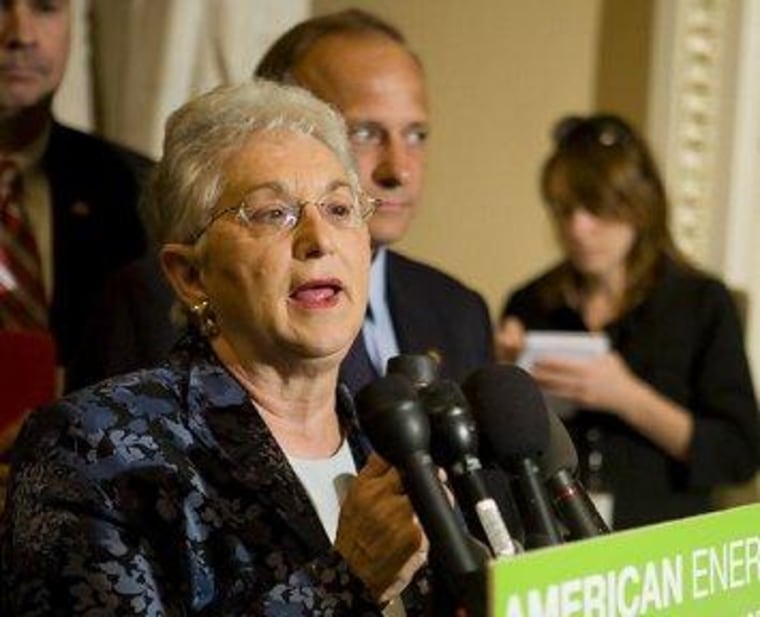We talked last week about a new Republican project, designed to "advance the role of women within our party." On Friday afternoon, the initiative, which will fall under the umbrella of the National Republican Congressional Committee, was formally launched, along with its new name.
With a stagnant number of women in its caucus, the House GOP's campaign organization announced a new program Friday, Project Grow, to recruit, mentor and elect more female candidates in 2014."We need more women to run," Rep. Virginia Foxx, R-N.C., said. "Project Grow will plant that seed that will get them thinking of doing it." [...]"Women are the majority, and we need to do a better job, and that's what this is all about," NRCC Chairman Greg Walden, R-Ore., said of Project Grow at the event.
According to the project's website, it's actually an acronym: "Project GROW" stands for "Growing Republican Opportunities for Women." (Yes, the "G" in "GROW" stands for "grow.") Once the initiative was launched, the Republican National Committee touted the effort with an unfortunate choice of words: "We need to be a party that allows talented women to rise to the top."
This, of course, led DNC Chair Debbie Wasserman-Shultz to immediately respond to the use of the word "allow", "Democratic women DO rise to the top. We don't need permission."
Stepping back, it's worth noting that there's nothing especially wrong with the idea behind "Project GROW," and I think there's value in major parties recruiting more women candidates to seek and hold public office. The Republican Party is currently dominated by men, especially in Congress -- remember the House committee chairs? -- and if the party is committed to making gender diversity a priority, more power to 'em.
The problem, however, is what Republican leaders think efforts like these will do for the party.
GOP officials seem to understand that the gender gap is large and getting larger. The party is not only alienating racial and ethnic minorities at an alarming pace, it's also watching women become more Democratic with each passing year.
It makes sense that Republicans want to do something about this. It doesn't make sense that Republicans have a diagnosis that has nothing to do with the underlying ailment.
I haven't seen any polling on this lately, so I'll concede that my assessment is based more on observation than quantitative analysis, but I have a strong hunch that if a pollster were to ask American women nationwide about why the GOP is struggling with women voters, "candidate recruitment" would not be near the top of the list.
Rather, the problem seems to be with the Republican Party's policy agenda. If "Project GROW" brings a more diverse slate of candidates, that's nice, but if the candidates are pushing the same proposals that drove women voters away in the first place, Republicans will probably be disappointed with the results.
Indeed, even the timing of "Project GROW" helps reinforce the larger issue -- the national party is prioritizing candidate recruitment, while Republican policymakers at the state and federal level are pushing measures that severely undermine women's rights.
Adding insult to injury, Republicans have chosen Rep. Marsha Blackburn (R-Tenn.) to play a leadership role in this project, despite the fact that she opposes pay-equity measures for women, and voted against the Lilly Ledbetter Fair Pay Act and the Paycheck Fairness Act.
Let's make this plain for party leaders: recruitment matters, but policies matter more. If Republicans want to close the gender gap, they'll need to reconsider their agenda, not just their slate of candidates.
